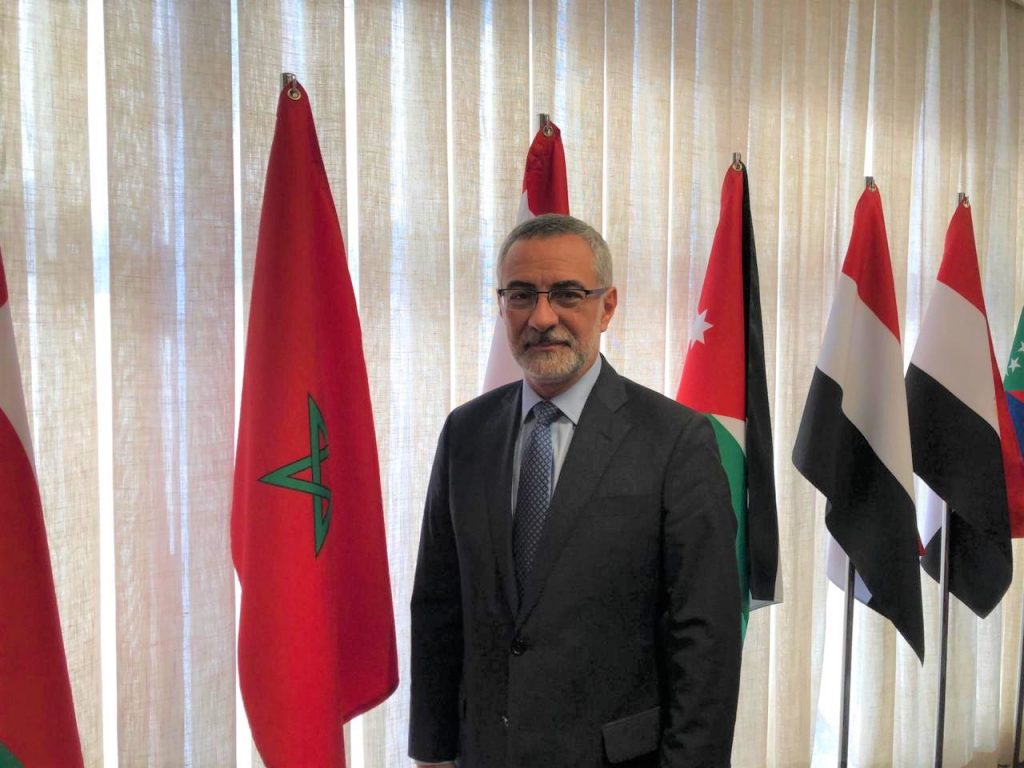São Paulo – The priorities of new Brazil’s ambassador to Morocco will be diversifying exports and signing a free trade agreement between Mercosur and the North African country. Julio Glkinternick Bitelli – who is leaving the embassy in Bogotá, Colombia, where he has worked since 2016 – was approved last week by the Senate Committee on Foreign Relations. He expects to take office in Rabat in September.
“Brazil-Morocco trade is overly focused on a few items. Brazil essentially purchases phosphate and phosphate derivatives and sells some agricultural products, especially corn and sugar,” Bitelli told ANBA. He visited the Arab Brazilian Chamber of Commerce in São Paulo this Monday (1). Year-to-date through May, Brazil exported USD 176.8 million to Morocco, and purchased USD 289.8 million in Moroccan products. The information is from the Arab Brazilian Chamber.
The ambassador points out that the tariffs for meat in Morocco are too heavy on Brazilin products. Beef is tariffed at almost 200%, while poultry is tariffed at 100%, making it hard for Brazilian products to compete.
According to Bitelli, since Morocco has free trade agreements with several meat-producing countries, this causes Brazilian meat to face very high tariffs. “We must work on reducing the tariffs and making it possible for our products to more competitively break into the Moroccan market, especially beef and poultry, which are goods that Brazil traditionally exports to the Arab countries, even because we work very well with halal products,” the ambassador said. “Halal” products are those adequate for Muslim to consume.

Bitelli said that a “very important” point is the free trade agreement between Mercosur and Morocco. “Talks already started but have been frozen for quite a while, and now that we signed the agreement between Mercosur and the European Union this will allow Mercosur to devote its full attention to this negotiation with Morocco – since they had been given priority to the agreement with the European Union. Now, the Moroccan officials have asked to analyze the terms and we are expecting a response from them that allow us to resume talks. It’s a process with a huge potential,” he explained.
The relation between both countries, Bitelli said, includes different areas that cannot be disregarded. “Therefore, we’ll also work on the whole cultural relation, Brazil’s promotion, the academic, sportive and educational cooperation,” he added.
Tourism is another sector that may benefit from the free trade agreement between the South American bloc and the Arab country. “There’s an idea to increase the frequency of Royal Air Maroc direct flights to Brazil (São Paulo and Rio de Janeiro), and eventually adding other destinations in Brazil, and a signed agreement would reassure us to work on that,” he said.
Bitelli said he’s a friend of Brazil’s current ambassador to Morocco, José Humberto de Brito Cruz. “I’ve talked to him a lot, and it’s very useful to know how different topics of the bilateral agenda are going. I also had the chance to talk to Morocco’s ambassador in brasília (Nabil Adghoghi), who’s a very active diplomat and has done a great job, and we agreed to work together at both ends of this relation,” he said.
Tunisia
Bitelli’s first post as an ambassador was in Tunisia, another Arab country in North Africa, where he stayed from 2013 to 2014. “I had the privilege to be an ambassador to Tunis, Tunisia, and see the democratic transition in the country, the constituent assembly, the adoption of the Constitution, which is modern and liberal, establishing total gender equality, religious freedom; I also saw the first direct president election in the Republic of Tunisia, and seeing this great popular desire for modernization, for belonging to a more open society – which is something I see in other Arab countries as well – was an amazing experience,” he said.

Regarding Morocco, the ambassador said both countries have a lot in common but have distinct dimensions. “Two Mediterranean countries that are traditionally multicultural, which is important, a tradition of openness to the world, of religious tolerance. These are some of the traits I saw in Tunisia and are also part of Morocco, and I believe they’re crucial for the dialogue with a Brazil’s ambassador,” he said.
Bitelli said Brazil has a “wealth of goodwill” in these countries. “They have great admiration for Brazil, a willingness to make things happen, a huge demand. I saw that in Tunisia and I’m sure it’s also there in Morocco.”
Very enthusiastic with the chance to return to Maghreb (North African region that comprises Libya, Tunisia, Algeria, Morocco and Mauritania), Bitelli said he is going to work with a very important relation in a country that plays a relevant role in Africa, and has “a potential to expand relations (with Brazil), which is challenging for any ambassador.”
Bitelli was welcomed at the Arab Brazilian Chamber’s headquarters by CEO Tamer Mansour, vice-presidents Osmar Chohfi (Foreign Relations), Mohamed Mourad (Administrative) and Ruy Cury (Foreign Trade), Institutional Relations manager Fernanda Baltazar and Marketing director Janine Menezes.
Translated by Guilherme Miranda




